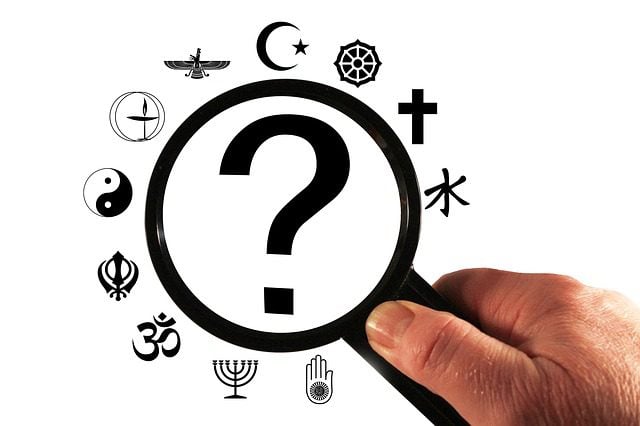Christian Smith is the Notre Dame sociologist who identified the religion of America’s youth as Moralistic Therapeutic Deismand who exposed the bias in the field of sociology. Now he attempts to put the field of the sociology of religion on a more rigorous basis in his new book Religion: What It Is, Why It Works, and Why It Matters.
The book includes many provocative insights, which we might go into later, but I’d like to concentrate first on the question of definition. What is religion, anyway? A field needs to define its subject matter before it can get very far in investigating it, but the sociology of religion has had problems with this.
A religion, says Smith, is not necessarily about God, the afterlife, or a justification for morals. Though some sociologists have approached the question in those terms, not all religions have these things.
Religion cannot even be defined as a particular set of beliefs, since many people practice a religion without necessarily agreeing with all of its beliefs or even knowing very well what they are. He gives the example of children, though the same could be said of other adherents whose knowledge of their religion is sketchy, at best.
Nor is religion to be defined by a sense of transcendence, the meaning of life, a sanction for the culture, the experience of the numinous, personal identity, or community belonging. Again, sociologists of religion have defined religion in these terms, but these are actually effects of religion, not religion itself.
It is possible to find these things apart from religion, to find the meaning of one’s life in political action or to experience transcendence through art or to gain a sense of community through a group of friends. A religion’s vitality–or lack of it–might be assessed by how well it creates–or has ceased to create–such effects.
But the question remains, what is religion? What is a definition that encompasses all religions in all of their diversity? Here is what Prof. Smith comes up with:
“Religion is a complex of culturally prescribed practices, based on premises about the existence and nature of superhuman powers, whether personal or impersonal, which seek to help practitioners gain access to and communicate or align themselves with these powers, in hopes of realizing human goods and avoiding things bad.” (22)
The “superhuman powers” can be God, gods, or impersonal forces. “In hopes of realizing human goods,” these powers might be prayed to, supplicated, or ritually manipulated; or the practitioners might learn to conform themselves to these forces.
The definition also focuses on “practices.” Prof. Smith says that assessing the truth of a religion is beyond the competence of social scientists. They therefore must study the visible actions that a religion employs and encourages. (He includes a non-comprehensive chart of 120 of them, from bowing and folding hands when praying to animal sacrifice!)
So what do you think of this definition?
Focusing on accessing superhuman powers to gain human goods and emphasizing practices rather than beliefs would seem to account for some religions better than others.
It gives respectability to animism and to the prosperity gospel. Its emphasis on practice rather than belief would seem to rehabilitate nominal believers and to Roman Catholics with their view that the sacraments work opere operato without the necessity of faith.
But what about evangelicals, for whom faith–that is, belief–is everything and who have little trust in the efficacy of “practices”?
What about Lutherans, who do have the “practices” of the sacraments, but who not only emphasize faith but grace–the notion that God does everything for us on His initiative–and who believe that God gives His gifts out of sheer love even “without our prayers” (Small Catechism, the petitions of the Lord Prayer).
Prof. Smith anticipates some of these problems, showing that evangelicals do have religious practices (such as going to Bible studies) and that salvation, fellowship with God, a relationship with Christ, etc., are “goods” in his terms.
Whatever. Christians have always emphasized the differences of their faith with all other religions, which they see as man-made and thus idolatrous.
To his credit, Prof. Smith does not affirm the unity of all religions–as so many sociologists do–nor does he say that it is possible to practice some overarching lowest-common denominator religion, including any suggested by his definition of the term. No such religion exists, he says. Only particular religions.
Nevertheless, his definition and his book sheds some important light on topics, such as the secularization hypothesis. We’ll discuss that and some of his other topics later.
Illustration by geralt via Pixabay, CC0, Creative Commons














